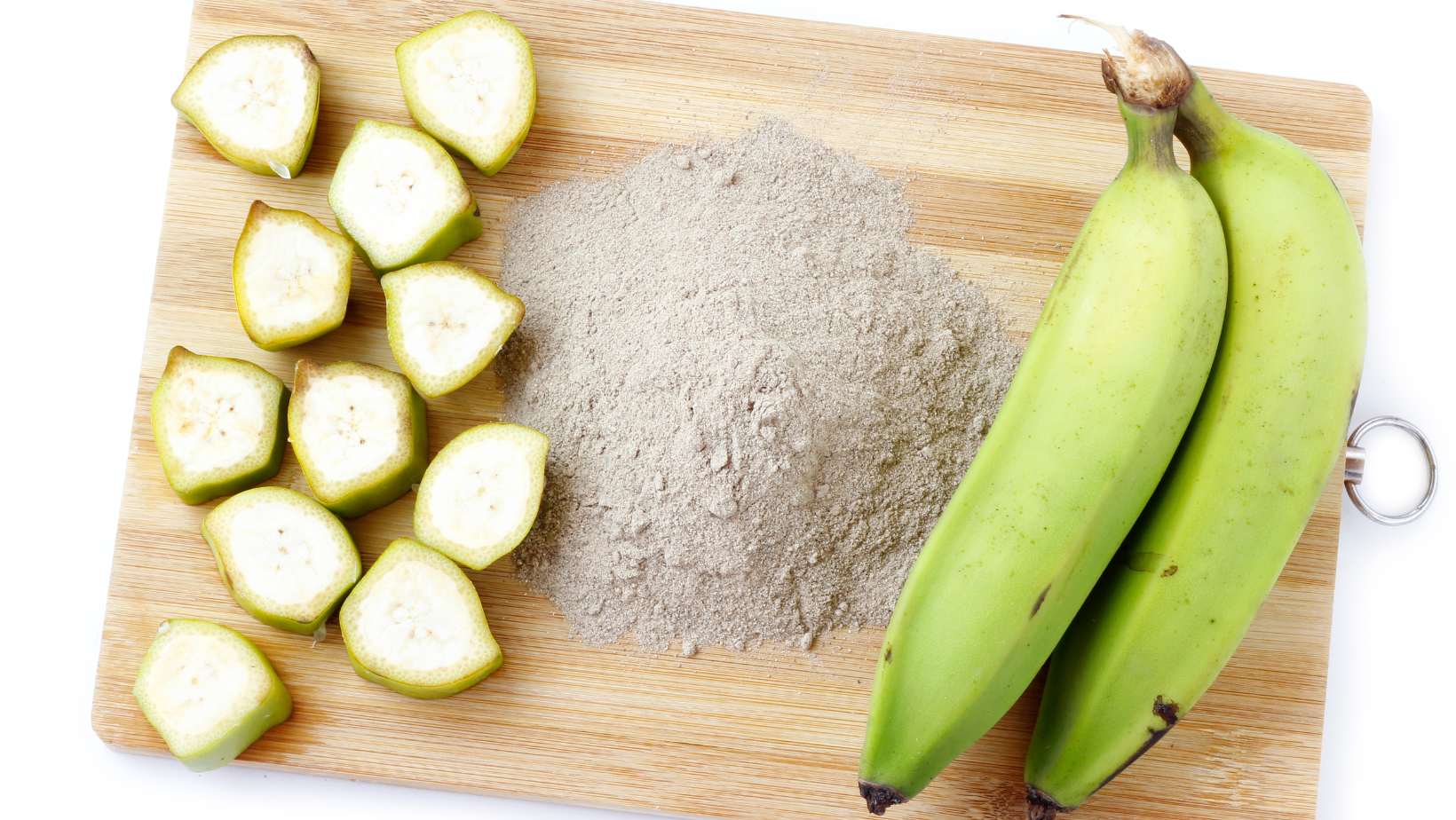When you hear the words “potato starch,” you might immediately think of the kind of refined carbs that spike your blood sugar and sabotage your weight loss efforts. However, there’s a special type of starch that actually does the opposite – it’s called resistant starch, and it’s a powerful tool for optimizing your gut health, metabolism, and more.
What Is Resistant Starch and Why Should You Care?
Resistant starch is a type of starch that resists digestion in the small intestine. Instead of being broken down into glucose like regular starch, it travels intact to the large intestine, where it becomes food for the trillions of beneficial bacteria that reside there.
Think of resistant starch as a prebiotic – essentially, it’s compost for your gut microbiome. When the good bugs in your colon ferment this starch, they produce short-chain fatty acids (SCFAs) that nourish your intestinal cells and provide a host of metabolic benefits.
The Surprising Link Between Resistant Starch and Weight Loss
One of the most exciting benefits of resistant starch is its potential for promoting weight loss. Unlike regular starch, resistant starch doesn’t spike your blood sugar or insulin levels. In fact, it actually improves insulin sensitivity and helps stabilize blood glucose after meals.
In one study, consuming 15-30 grams (2-4 tablespoons) of potato starch daily improved insulin sensitivity in obese men as much as losing 10% of their body weight. Resistant starch also increases satiety, reduces fat storage, and boosts fat burning – all of which can support healthy weight management.
Feeding Your Inner Garden: How Resistant Starch Optimizes Gut Health
Beyond its benefits for metabolism, resistant starch is a powerful prebiotic that can reshape your gut microbiome for the better. When beneficial bacteria ferment resistant starch, they produce butyrate – a short-chain fatty acid that has been shown to:
- Reduce inflammation
- Prevent leaky gut syndrome
- Decrease risk of colon cancer
- Improve bowel regularity
Resistant starch also helps beneficial bacteria thrive while crowding out pathogenic strains. This is critical because imbalances in the gut microbiome (known as dysbiosis) have been linked to a wide range of health issues, including obesity, diabetes, heart disease, autoimmune conditions, and even mental health disorders.
Not All Resistant Starch Is Created Equal: Best Food Sources
So, what are the best ways to incorporate resistant starch into your diet? Some top food sources include:
- Green bananas and plantains
- Cooked and cooled potatoes, rice, and legumes
- High-amylose corn and peas
However, for many people following a low-carbohydrate or ketogenic diet, these foods may be too high in total carbs. That’s where supplemental resistant starch comes in.
The Power of Potato Starch: A Gut-Friendly Supplement
One of the best supplemental sources of resistant starch is unmodified potato starch. Bob’s Red Mill Unmodified Potato Starch contains about 8 grams of resistant starch per tablespoon and mixes easily into water or smoothies.
It’s important to start slowly with potato starch and gradually work up to 2-4 tablespoons per day. This allows your gut bacteria to adapt and minimizes potential side effects like gas and bloating. If you experience significant digestive discomfort, it may be a sign of an underlying issue like SIBO (small intestinal bacterial overgrowth) that warrants further investigation.
The Bottom Line
Resistant starch is a unique type of prebiotic fiber that can have profound effects on gut health, metabolism, and weight management. To optimize your intake, try these simple strategies:
- Incorporate whole food sources like green bananas, cooled potatoes, and legumes
- Experiment with unmodified potato starch, starting with 1 tablespoon per day and gradually increasing
- Combine resistant starch with other gut-supportive practices like eating fermented foods and managing stress
By nourishing your gut bacteria with this powerful prebiotic, you’ll be well on your way to a healthier microbiome – and a healthier you.
Frequently Asked Questions
What’s the difference between potato starch and potato flour?
Potato flour is made from whole potatoes and contains regular starch that is easily digestible. Potato starch, on the other hand, is a concentrated source of resistant starch that is not digested in the small intestine. For the benefits described in this article, be sure to choose unmodified potato starch.
Can resistant starch help with blood sugar control?
Yes, resistant starch has been shown to improve insulin sensitivity and reduce blood sugar spikes after meals. It may be a useful tool for managing prediabetes and type 2 diabetes as part of a balanced diet and lifestyle.
Are there any risks or side effects associated with resistant starch?
Resistant starch is generally well-tolerated, but some people may experience increased gas and bloating when they first start taking it. This is usually a sign that the bacteria in your colon are adjusting to their new food source. To minimize side effects, start with a low dose (1 teaspoon or less) and gradually work your way up.
